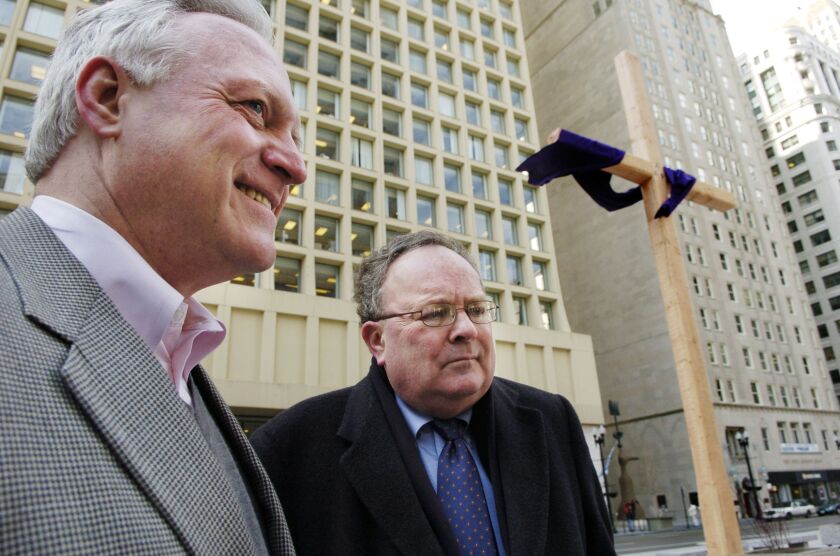Mayor Lori Lightfoot said Friday the city of Chicago will start suing gang members to “take their assets” — a strategy that’s been used in the suburbs for more than 20 years with mixed results.
In suburban counties, state’s attorneys have used the Illinois Street Gang Prevention Act to sue gang members, seeking monetary damages and court orders barring gang members from associating with each other and possessing guns.
Lightfoot said she’ll propose an ordinance Monday to allow the city’s lawyers to file such lawsuits.
She said her proposed anti-gang ordinance isn’t her way of bypassing Cook County State’s Attorney Kim Foxx. The mayor has publicly disagreed with Foxx’s handling of gun cases, carjackings and other crimes.
“We can’t wait for anybody else,” Lightfoot said. “We have an opportunity to bring these violent street gangs into civil court, out of the shadows, expose them for what they are — and, if we’re successful, and I think we will be, take their assets and the profit motive for killing our babies.
“We have to put a marker down that we are using every tool in our toolkit to push back against these violent gangs that are leaving a trail of blood and death and misery in their wake.”
John Mauck, an attorney who successfully defended four men against such a lawsuit in Kane County, said Lightfoot’s announcement is “98% political and 2% reality.”
“It’s a toothless charade,” Mauck said. “They can get dozens of court orders, but it will not stop crime.”
Hundreds of gang members have been sued in Kane and DuPage counties over the years, but the lawsuits largely have failed to collect monetary damages from gang members, Mauck said.
He also said the lawsuits unfairly target low-income gang members who can’t get court-appointed lawyers the way they would if they were charged with a crime.
DuPage County, a pioneer in suing gang members, won an injunction in 2004 barring 14 members of the Satan Disciples from associating publicly with each other or possessing guns.
Past Chicago Police Supts. Phil Cline and Supt. Jody Weis explored using such suits against gangs, but that never happened in Chicago.
In the suburbs, the strategy hit a roadblock in 2018 in Kane County when a judge dismissed a 2010 lawsuit filed against four men.
During a trial, an Elgin police officer had testified the men were placed in the city’s gang database in 2010 because they’d attended the funeral of a slain Latin Kings member. In 2013, their names were purged from the Elgin gang database when they were no longer active in the gang, the officer testified. Yet the civil case went forward.
The judge ruled the men weren’t even members of the gang when the lawsuit was filed in 2010 and dismissed the lawsuit.
Mauck, who represented those four men, is still fighting to get them compensation for being wrongfully named in the suit. He said his clients were actually trying to get other gang members to quit and “come to Jesus.”
It’s unclear what role the Chicago Police Department’s gang database might play in the city’s lawsuits against gang members. In two separate reports last year and in March, city Inspector General Joseph Ferguson has said the database is “seriously flawed.”
But police officials say a revised system, with better auditing, will be ready soon.
“We are a few weeks from that being fully utilized,” police Supt. David Brown said Friday. “It is fully vetted. You can appeal if you are on the list erroneously.”
Brown said he supports the idea of Chicago suing gang members.
“They’re flashing guns, money, this lifestyle that glamorizes cars, jewelry,” he said. “It is a very strategic move that the city is taking to take their stuff — take the glamor off of being in a gang.”
Ed Yohnka, a spokesman for the American Civil Liberties Union of Illinois, said lawsuits won’t work: “Civil asset forfeiture is not the vehicle for reducing gun violence in the city. Sadly, the city’s history with a gang database does not instill confidence in their capacity to target the appropriate people for forfeiture.”








